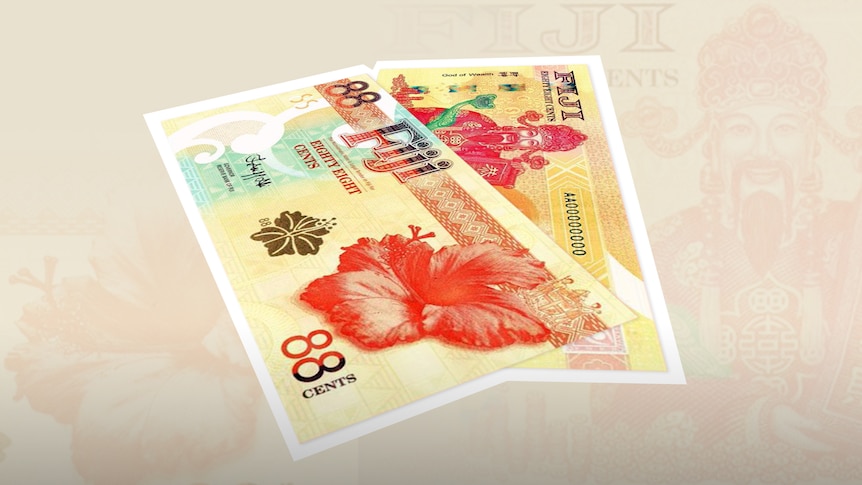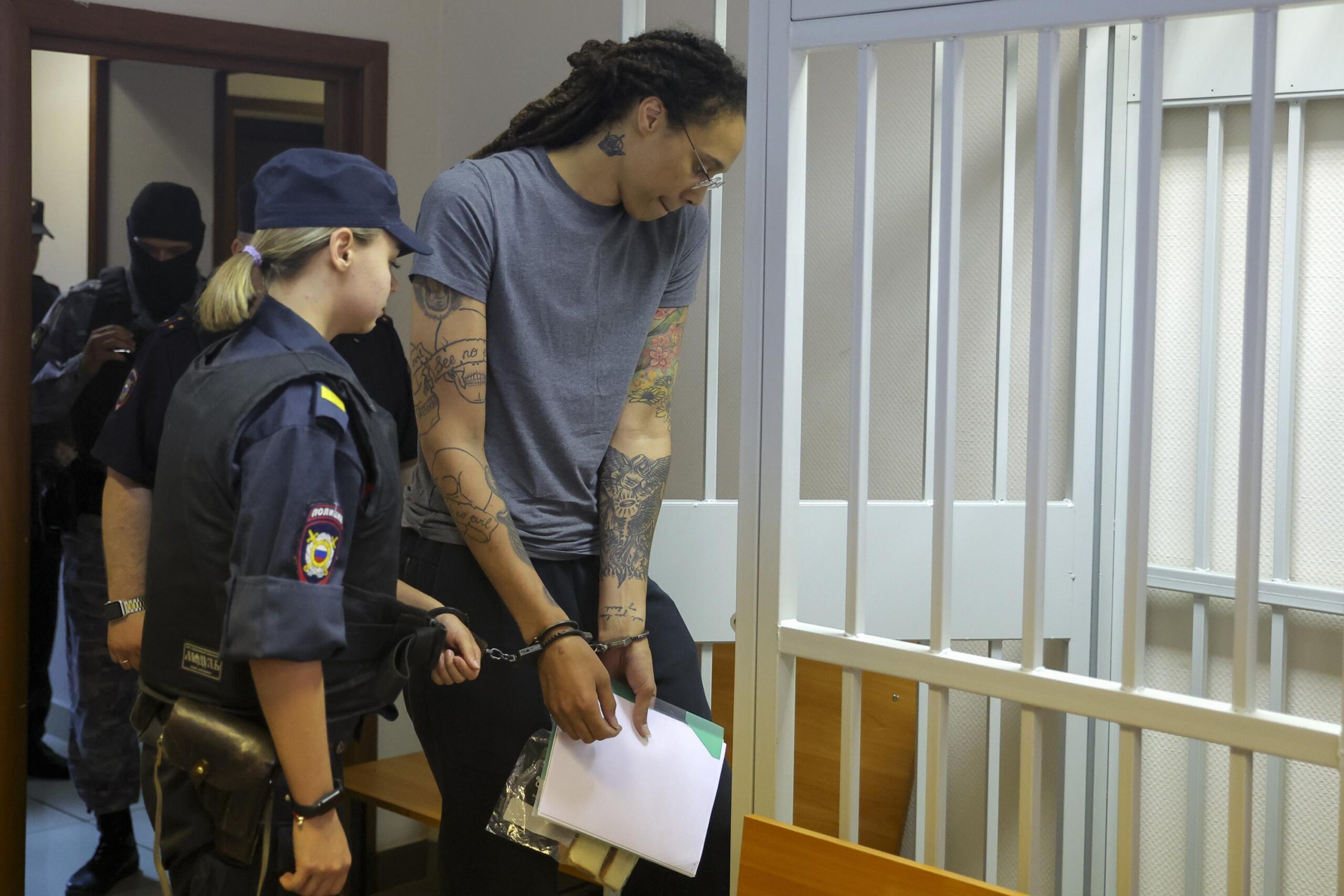The Reserve Bank of Fiji (RBF) has begun issuing a Chinese-themed 88-cent commemorative banknote, which has been causing a stir with many questioning the timing and significance of the release.
Key points:
- The banknote has been issued as a collectors’ item and will not be in circulation
- It features Chinese imagery, alongside the Fijian coat of arms
- The release has been polarizing at it comes at a time of geopolitical tension over China’s Pacific influence
The 88-cent collectors’ item was released on the eighth day of the eighth month of the year.
The number eight is considered a lucky number in Chinese culture, bringing wealth and fortune — and the more eights the better.
Accompanying the lucky Chinese number, one side of the note features an image of the Chinese god of wealth and a money tree.
The words “Good luck and good fortune. May prosperity be yours” are printed in the corner.
The other side has a hibiscus flower, the Fiji coat of arms and the Governor of the Reserve Bank’s signature.
The note is available for purchase from the RBF for FJ$28 ($18), but as it is numismatic, and so purely for collectors, it will not be in circulation.
Why has it been released?
The issue of the note has raised eyebrows and sparked a flurry of confusion on social media.
loading
People joked about the worth of the 88-cent currency, while others questioned why the RBF would release the note at a time when China’s growing influence in the Pacific has been causing diplomatic tension.
Following the “misinformation and speculation on social media,” the RBF issued a clarification statement.
It said the banknote was created to generate sales income targeting the Chinese and wider Asian market, adding that “NO NEW $0.88 numismatic banknotes will be entering into circulation”.
“The newly-announced $0.88 numismatic banknote is among the hundreds of non-circulation numismatic currency that the RBF has produced since 1974,” the statement said.
“The practice is similar to that of stamp production, whereby hobbyists can purchase the banknotes and coins for their collections.”
In the past, the RBF has issued banknotes and coins with Christmas imagery, celebrities, landmarks and Fijian fauna themes.
While it is common for the RBF to issue themed numismatics banknotes and coins, Biman Prasad — the leader of the National Federation party — said they are usually produced with a specific intention.
“They are normally produced to mark commemorative events of both national and sometimes international significance,” Mr Prasad told the ABC’s Pacific Beat program.
“I think the controversy is, what does it mean? What does this commemorate?”
De La Rue — a British company that collaborated with the RBF to design and produce the banknote — said it was released to bless people with fortune in challenging times.
“This theme was chosen because it was felt appropriate to wish people wealth and good fortune in the context of challenging global events,” De La Rue said.
loading
The RBF has generated over $8 million in income through the sale of numismatic banknotes and coins.
Mr Prasad said it is odd for the bank to be focusing on raising funds when there are more important issues to address.
“The Reserve Bank should be really concerned about other issues, particularly inflation and high cost of living,” he said.
Suspicion vs celebration
The Chinese community in Fiji is small but significant.
There are around 8,000 people of Chinese origin who live in the country, which makes up about 1 per cent of the population.
Mr Prasad said the community is respected and had contributed to the development of the country in a significant way.
However, in the current geopolitical circumstances, it creates “suspension and controversy”.
“At this point in time, it doesn’t make sense for them to engage in these kinds of novelty exercises,” he said.
Neisau Tuidraki is a Fijian based in Melbourne who describes herself as an “avid” banknote collector.
She thinks the new note should be embraced as a way to celebrate Fiji’s Chinese community.
“It’s very polarizing for some people, but avid collectors like myself will probably buy it up,” Ms Tuidraki told the ABC.
“I’ve actually talked to a couple of my family back home and asked them to go into the Reserve Bank and purchase one for me.”
While Ms Tuidraki acknowledges the animosity regarding China’s influence in the region, for her the note symbolizes the generations of positivity.
“I can honestly say that some of the best Chinese food I’ve had is in Fiji,” she said.
“As Fijians, we should embrace it. We have a very vibrant and diverse Chinese community in Fiji, and I think it’s a good way to celebrate that.”
Australian National University professor of finance Meijun Qian also believes the move should not be politicised.
She views it simply as a symbol of economic collaboration.
“It’s being too criticized,” Professor Qian told the ABC.
“If Fiji wants to develop more economic connections with China with this kind of symbolic thing, I don’t think they need to get any extra political attention.”
.

